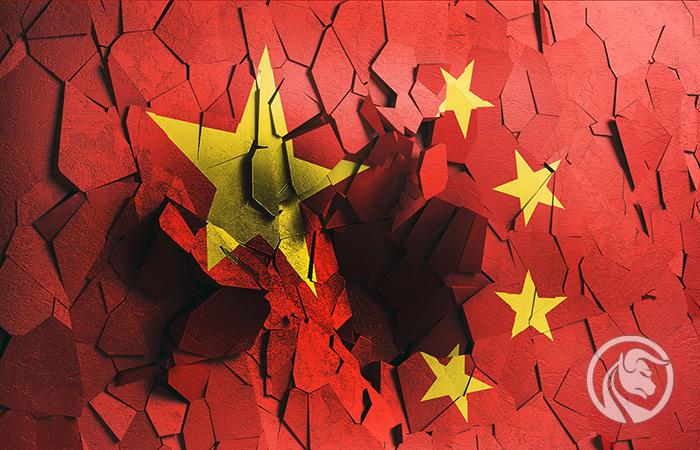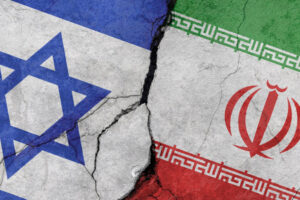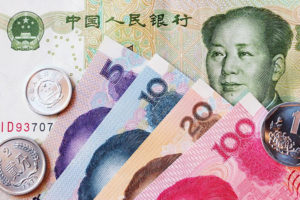Investing in China: Navigating Q1 amid economic challenges
China's policy meetings in Q2023 1 demonstrate a lack of urgency in prioritizing countercyclical actions. The direction of the development strategy depends on the Third Plenum Q2024 XNUMX. Technology, advanced production, energy and green metals may provide fertile ground for medium-term growth, despite challenges and uncertainties.
Decoding Q1: Insights from recent political meetings
Central Working Conference on Finance (CFWC), the Politburo meeting and the Central Economic Work Conference (CEWC) convened in the fourth quarter of 2023 to review the future policy landscape.
Notably, the CFWC's official announcement sidestepped discussions on deleveraging, opting instead to address risks in the real estate sector. However, a less favorable message was sent in an article in Qiushi, the party's propaganda mouthpiece, highlighting President Xi's directives at the conference to stick to Marxist theories of political economy to reform the financial system. Interestingly, the article, which included 23 references to "risk", clearly avoided mentioning solving problems related to risk in the real estate sector or local government debt. The main motive was the party's control over the financial system.
In the next CEWC, President Xi prioritized "pursuing progress while ensuring stability" and "high-quality development", which are the key to economic growth. Among the nine priorities for 2024, priority is given to "the development of new industries and business models through technological innovation." These priorities lack the urgency of anti-clical politics. Referring to the reading from the last Politburo meeting, the CEWC suggested strengthening fiscal and industrial policies, with a stable monetary policy, putting aside short-term growth stimulation.
To prevent a decline in economic growth in China, measures are needed to increase productivity and restore business confidence. In addition, debt restructuring will be necessary real estate sector and takeover of projects. The critical period of Q1 2024 will be the litmus test. After the Third Plenum, it will be possible to better understand China's economic policy and strategic directions. Currently, there is a certain amount of uncertainty in navigating the macroeconomic landscape.
Don't anticipate, prepare
Now is the time to remain humble, cautious and flexible as market conditions change. We cannot see the future through a fictional gap in the curtain, as in John Buchan's classic. This does not mean that we should ignore the macro context or follow current narratives. As Howard Marks, founder of Oaktree Capital Management, emphasizes: “We can't predict, but we can prepare. “Awareness of business cycles, credit cycles and market sentiment can help with investing.”
Sowing seeds in fertile soil
Technology and advanced production
Unless we hear something dramatically different from the Third Plenum, increasing productivity and technological self-sufficiency will remain two structural themes of China's long-term development strategy. They are unlikely to disappear despite cyclical fluctuations in the economy. Technology companies and advanced manufacturing companies that produce tangible products tend to benefit from favorable industrial policies. Examples include: Xiaomi, Zhejiang Sanhua Intelligent Controls, Luxshare Precision, Shenzhen Inovance and ETFs that focus on these industries.
Energy and green metals
Energy security, green transition and food security are persistent topics that will continue to receive political support. Companies like CNOOC, PetroChina, Zijin Mining and Ganfeng Lithium are aligned with these themes.
Internet and Consumer Goods
While categories 1 and 2 above provide a basis for gradually planting seeds to participate in long-term trends and benefit from favorable industrial policy tailwinds, investment opportunities may arise in internet and consumer goods stocks. This choice is intended for more agile traders who observe the dynamics of the cyclical recovery of the Chinese economy. Alternatively, these shares can serve as trading instruments based on reading tea leaves in the first quarter in anticipation of the Third Plenum and two-session meetings, as well as on reactions to the results of these meetings.
Note: Company information listed is for illustrative and inspirational purposes only and not for investment advice.
Author Redmond Wong, market strategist, Saxo Bank






















![Forex Club – Tax 9 – Settle tax on a foreign broker [Download the Application] Forex Club - Tax 9](https://forexclub.pl/wp-content/uploads/2024/02/Forex-Club-Podatek-9-184x120.jpg?v=1709046278)
![Trading View platform – solutions tailored to the needs of traders [Review] trading view review](https://forexclub.pl/wp-content/uploads/2024/03/trading-view-recenzja-184x120.jpg?v=1709558918)
![How to connect your FP Markets account to the Trading View platform [Guide] fp markets trading view](https://forexclub.pl/wp-content/uploads/2024/02/fp-markets-trading-view-184x120.jpg?v=1708677291)
![CRB index – one of the popular commodity market benchmarks [Guide] crb index](https://forexclub.pl/wp-content/uploads/2024/05/indeks-crb-184x120.jpg?v=1715055656)
![How to invest in ChatGPT and AI? Stocks and ETFs [Guide] how to invest in chatgpt and artificial intelligence](https://forexclub.pl/wp-content/uploads/2023/02/jak-inwestowac-w-chatgpt-i-sztuczna-inteligencje-184x120.jpg?v=1676364263)





![Izabela Górecka – “Success on the market depends not only on knowledge, but also on emotional stability” [Interview] Izabela Górecka - interview](https://forexclub.pl/wp-content/uploads/2024/04/Izabela-Gorecka-wywiad-184x120.jpg?v=1713870578)
![WeWork – the anatomy of the collapse of a company valued at $47 billion [WeWork, part II] wework bankruptcy story](https://forexclub.pl/wp-content/uploads/2024/04/wework-bankructwo-historia-184x120.jpg?v=1711729561)
![Adam Neumann – the man who screwed up Softbank [WeWork, part AND] adam neumann wework](https://forexclub.pl/wp-content/uploads/2024/04/adam-neumann-wework-184x120.jpg?v=1711728724)


![The most common mistakes of a beginner trader - Mr Yogi [VIDEO] Scalping - The most common mistakes of a beginner trader - VIDEO](https://forexclub.pl/wp-content/uploads/2024/03/Scalping-Najczestsze-bledy-poczatkujacego-tradera-VIDEO-184x120.jpg?v=1711601376)
![Learning patience: No position is also a position - Mr Yogi [VIDEO] Scalping - Learning patience - No position is also a position - VIDEO](https://forexclub.pl/wp-content/uploads/2024/03/Scalping-Nauka-cierpliwosci-Brak-pozycji-to-tez-pozycja-VIDEO-184x120.jpg?v=1710999249)
![When to exit a position and how to minimize losses - Mr Yogi [VIDEO] Scalping - When to exit a position and how to minimize losses - VIDEO](https://forexclub.pl/wp-content/uploads/2024/03/Scalping-Kiedy-wyjsc-z-pozycji-i-jak-minimalizowac-straty-VIDEO-184x120.jpg?v=1710336731)










